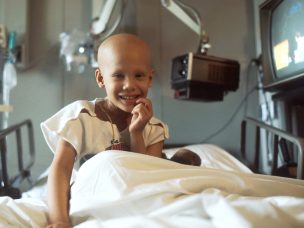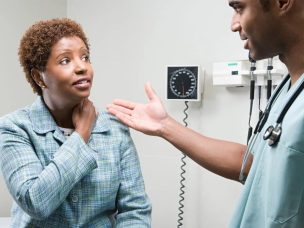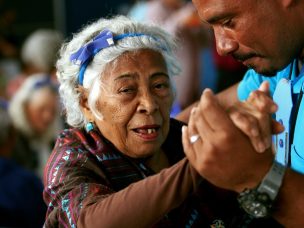Cancer
Sex Differences in Adverse Events From Cancer Treatments
Women experience more adverse events from chemotherapy than men. However, only a handful of research studies have explored sex differences in immune or targeted therapies. This study, published in the Journal of Clinical Oncology, examines adverse events by sex across these different types of cancer treatment. The researchers looked at treatment-related adverse events by sex in...
Latin Physician Perspectives: Palliative Care for Kids With Cancer
Although resource limitations may constrain the ability of physicians to provide palliative care to children with cancer, physician perceptions of palliative care may also have a big impact on which courses of treatment are chosen. This study, published in JAMA Network Open, sought to understand the perception of palliative care among physicians treating children with cancer...
Head and Neck Cancer Treatment: Sintilimab With Induction Chemo
Head and neck cancer is the sixth most prevalent cancer, with an annual incidence of more than 600,000 cases and a worldwide mortality rate of 350,000 deaths a year. Surgery, chemotherapy, and radiotherapy are the treatment modalities of choice. Induction chemotherapy (IC) is sometimes advised in select patients based on organ preservation considerations due to...
Considerable Racial/Ethnic, Sociodemographic Disparities Present in Cancer
Cancer death rates higher for Black versus White males and females; kidney cancer death rates higher for AI/AN people There are still considerable racial/ethnic and sociodemographic disparities in cancer occurrence and death rates, according to a report published online Dec. 8 in CA: A Cancer Journal for Clinicians. Farhad Islami, M.D., Ph.D., from the American...
Making Meaningful Change in Dermatology Research
In this MD Newsline exclusive interview with dermatologist Dr. Edidiong Kaminska, we discuss the latest research on melanoma treatment. We also discuss how to improve diversity and inclusion in dermatology clinical trials. MD Newsline: Is there any research that excites you or that you think is important for physicians to know related to the diagnosis and...
Dr. Edidiong Kaminska's Melanoma Treatment Strategy
In this MD Newsline exclusive interview with dermatologist Dr. Edidiong Kaminska, we discuss Dr. Kaminska’s melanoma treatment strategy. MD Newsline: How do you manage melanoma? Dr. Edidiong Kaminska: “Melanoma management depends on the stage of the melanoma. Usually, at the dermatological level, after a biopsy when the diagnosis is confirmed, if it is a stage...
Dr. Edidiong Kaminska: Melanoma Disparities
In this MD Newsline exclusive interview with dermatologist Dr. Edidiong Kaminska, we discuss disparities in diagnosing and treating melanoma before and during the COVID-19 pandemic. MD Newsline: What disparities in diagnosing and treating melanoma have you observed in your clinical practice? Dr. Edidiong Kaminska: “Primary care providers are the first line when it comes to...
Dr. Edidiong Kaminska: Melanoma
In this MD Newsline exclusive interview with dermatologist Dr. Edidiong Kaminska, we discuss why melanoma is an important health issue. We also discuss why patients of all skin types need a skin check and sunscreen. MD Newsline: Can you explain why melanoma is an important health issue? Dr. Edidiong Kaminska: “Melanoma is a skin cancer...
The Oncogenic Role of COPB2 in Human Tumors
Coatomer protein complex subunit beta 2, also known as COPB2, may act as an oncogene in certain types of cancer. Until now, no systematic pan-cancer analysis has been performed on COPB2. This study, published in BioMed Research International, used The Cancer Genome Atlas and the Gene Expression Omnibus datasets to analyze the oncogenic role of COPB2. ...
More Medical News











